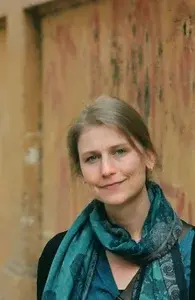For all queries regarding your semester abroad (planning, learning agreement, recognition forms, etc.) please use my regular office hours.
Campus
Department of Media and Communication Studies
C18 – teaching building 4
Alfred-Weber-Platz 4
99089 Erfurt
Universität Erfurt
Department of Media and Communication Studies
Postfach 90 02 21
99105 Erfurt
Students please use my regular office hours (see under "research associate")
Applicants please contact us via Email:
Campus
Faculty of Philosophy
C18 – teaching building 4
Alfred-Weber-Platz 4
99089 Erfurt
Universität Erfurt
Faculty of Philosophy
Postfach 90 02 21
99105 Erfurt
Office hours during the non-lecture period:
Wednesday, 11 Feb. 2026: 2 - 3.30 PM
Monday, 2 March 2026: 10 AM - 12 PM
Monday, 30 March 2026: 10 - 11:30 AM
(Please register in advance via Reginald: reginald.kyere@uni-erfurt.de)
Campus
Department of Media and Communication Studies
C18 – teaching building 4
Alfred-Weber-Platz 4
99089 Erfurt
Universität Erfurt
Department of Media and Communication Studies
Postfach 90 02 21
99105 Erfurt

New Publications
Latest Activities and Projects
In this breakthrough investigation, Kai Hafez and Anne Grüne place globalization, one of the most popular keywords of our times, under renewed critical scrutiny. In a powerful conceptual language, they develop an original account of the asymmetries and tensions of our interconnected world and offer a novel understanding of how its various communicative actors and their systemic relations, at once, bind us together and keep up apart. The outcome is a compelling narrative that sheds light on some of the most urgent challenges of our time, including the rise of global fundamentalisms and illiberal populisms. A must-read.
Prof. Lilie Chouliaraki, London School of Economics and Political Science
This is a wide-ranging, sophisticated yet critical discussion of the globalization of communication. Telescoping from the systemic to the individual, and encompassing politics, commercial networks and media systems, the book provides a multi-faceted assessment of the potential and limitations of global communications.
Prof. Herman Wasserman, University of Cape Town, South Africa
Hafez and Gruene’s book offers much needed insight into the challenges of today’s diversity of globalized interconnections. It is an excellent source for scholars and students alike when aiming to assess globalized communication in its concrete current formations. Through combining conceptual debates and empirical insights, the book is a key read to understand the multifacted interactions of our digital world.
Prof. Ingrid Volkmer, University of Melbourne, Australia
This extremely useful and timely translation of the original German publication by Hafez and Grüne is a great resource for students and researchers alike, as it deeply enriches – both theoretically and methodologically – the burgeoning literature on global communication’.
Prof. Daya Thussu, Baptist University, Hong Kong
In summary, it is difficult to overestimate the importance of this book. In its enormous but sober scope, it makes one wonder how scholars in global communication and global media studies have managed to engage in the field for such a long time. The methodical approach to considering all forms of communication and their impact and influence on global interdependence is breathtaking. Those who have spent years gauging and assessing the globalizing power of mass media will have their bubbles burst – and enjoy it, for the sophistication through which this text carries its arguments leaves little room for anything but appreciation. In that sense, it is a genuine tour de force for the field and makes one wonder if anything will be the same after. The writing is comprehensive, convincing and utterly compelling.
[...] With this book, Hafez and Grüne have made a towering contribution to the academy, destined
to influence scholarship on global media and communication for some time to come in the foreseeable future. The way we look at cross-border communication desperately needs to change, and by more exactingly considering processes at work in social systems and lifeworlds, we may now have a more realistic empirical footing to stand on.
Dr. Todd Nesbitt, European Journal of Communication 2023, 28(3), 314-322
Hafez und Grüne gelingt es mit ihrem Handbuch, die Kommunikationstheorie prominent zu platzieren. (...) (Sie) tragen zu einer soliden Fundierung und fruchtbaren Diskussion zur Globalisierungsdebatte aus kommunikationswissenschaftlicher Sicht bei. (...) Nehmen Sie dieses Handbuch auch wirklich physisch oder virtuell „in die Hand". Das Lesen ist ein Gewinn.
Translation: "Hafez und Grüne successfully and prominently position communication theory in the globalization debate. (...) They contribute to a solid foundation and fruitful discussion of globalization from the perspective of communication studies. (...) Make sure that you take this handbook really "into your hands". You will definitely profit from reading it." (own translation)
Prof. Dr. Thomas Herdin, Univ. of Salzburg, Publizistik 2022, 67, 141-143
Von der Erforschung vielschichtiger Interdependenzen (Nationalstaat vs. Transnationalisierung, globale Eliten vs. lokale Mehrheiten, Einwirkung von/auf Medien) bis zur nötigen Verantwortung der Global Player ist hier anspruchsvoll nachzulesen. M.E. alternativlos.
Translation: "The deep structure (of the handbook) enables users targeted entries. Readers receive complex and sophisticated information about multi-layered interdependencies (nation state vs. transnationalization, global elites vs. local majorities, role of the media) and the relevant responsibilty of global players. There is not alternative to this book."
Annette Rugen, 2021, ekz Bibliotheksservice ID IN 2021/20
Media and transformation in Germany and Indonesia is a thought-provoking and analytically helpful book. It corrects some established assumptions and proposes directions of asymmetrical comparisons for further research. Its comparisons, made through a collection of writings with the aim of bridging a gap between theory and practice, succesfully remind us that we live in asymmetrical constructions in multiple dimnesions, and that nothing is really an apple or an orange - or a durian.
Souisa, Hellena (2021): Indonesia - Media and transformation in Germany and Indonesia: Asymmetrical comparisons and perspectives Edited by Anne Grüne, Kai Hafez, Subekti Priyadharma and Sabrina Schmidt Berlin: Frank & Timme, 2019. Pp. ix, 342. List of Authors, List of Conference Participants. Journal of Southeast Asian Studies, 1-3. DOI:10.1017/S0022463421000370
